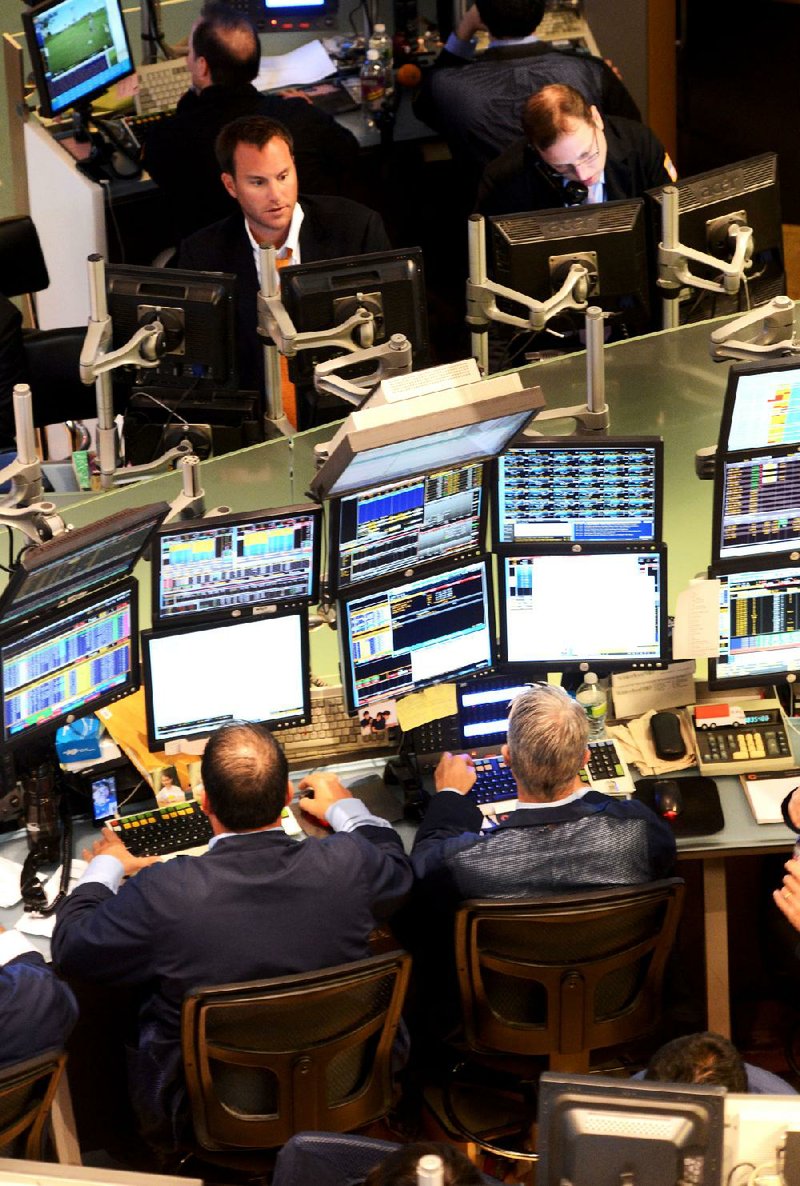NEW YORK — Fear that Spain may need a bailout sent its borrowing costs soaring, the euro to a two-year low against the dollar and stocks around the world tumbling as investors pulled back Monday from all manner of risk.
The Dow Jones industrial average, after falling 239 points earlier in the day, ended down 101.11 at 12,721.46. Yields for U.S. government bonds sank to record lows as traders sought the safety of American debt.
Borrowing costs rose sharply for Spain and Italy after news that the Spanish economy contracted by 0.4 percent in the second quarter. Falling economic output makes it more difficult for Spain to deal with its debts.
The Standard & Poor’s 500 index fell 12.14 points to 1,350.52. The Nasdaq composite index dropped 35.15 points to 2,890.15.
Consolidated volume was 3.47 billion shares.
“Increases in Spanish borrowing costs have brought back questions about the health of Europe,” said Guy LeBas, chief fixed income strategist at Janney Montgomery Scott in Philadelphia. “That’s driven a flight to safety.”
The selling was widespread. All 10 industry groups within the S&P 500 were down, with materials and health care companies off more than 1 percent. Including Friday’s drop, the Dow is down 222 points, the biggest back-to-back drop in more than a month.
In addition to Spain, investors are worried that Greece might get cut off from emergency loans it needs to avoid default. Inspectors from its international creditors arrive in the country today to check on its progress in cutting its budget and in meeting other conditions it had agreed to in exchange for aid.
The Greek government has repeatedly failed to hit targets required for the two bailouts it has received so far.
Adding to the jitters, a Chinese central bank adviser forecast that China’s economic growth could slow from its second-quarter rate of 7.6 percent, which was already the slowest in three years.
Investors had hoped that the world’s second-largest economy would compensate for slowdowns in the U.S. and Europe but now aren’t so sure.
“I wish it were still the weekend,” said Lawrence Creatura, a portfolio manager at Federated Investors, a mutual fund firm. “People were initially worried just about Europe, but now it’s spread to China and beyond.”
Bank stocks, which tend to take a hit when fear flares in Europe, were among the biggest losers. Citigroup stock dropped 53 cents, or 2 percent, to $25.34.
The price of oil fell $3.69, or 4 percent, to finish the day at $88.14 per barrel in New York. Exxon Mobil stock declined 74 cents, or nearly 1 percent, to $85.21.
The euro slipped just below $1.21 against the dollar, its lowest since June 2010.
“Investors are on edge,” said Russ Koesterich, the San Francisco-based global chief investment strategist for the IShares unit of BlackRock Inc. His firm oversees $3.56 trillion. “Chinese growth has slowed. It’s not clear that the existing firewalls in Europe are large enough. We knew the Spanish regional governments had debt. The question is: How bad is it?” Information for this article was contributed by Matthew Craft of The Associated Press and by Rita Nazareth of Bloomberg News.
Business, Pages 22 on 07/24/2012
